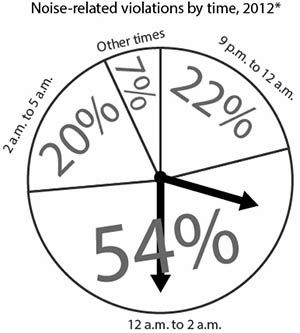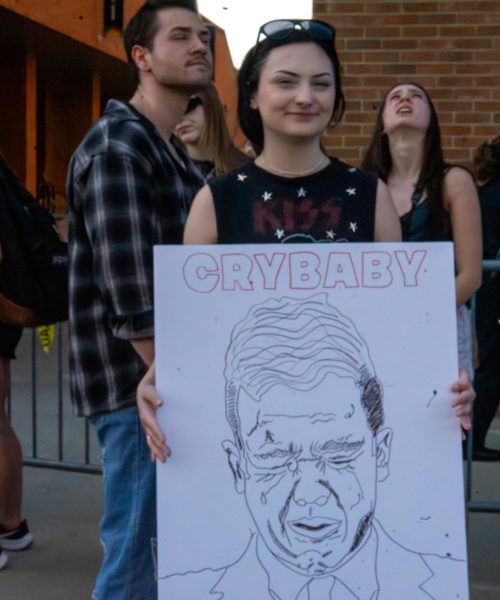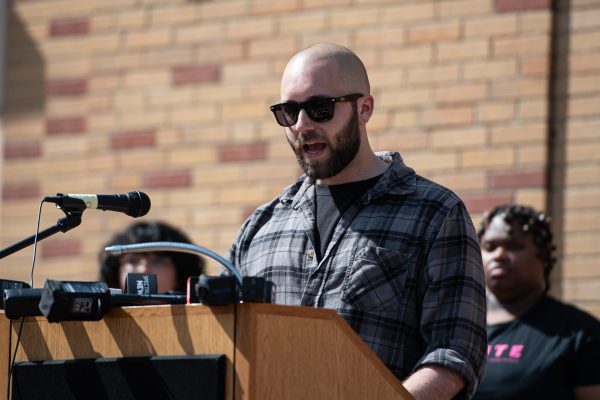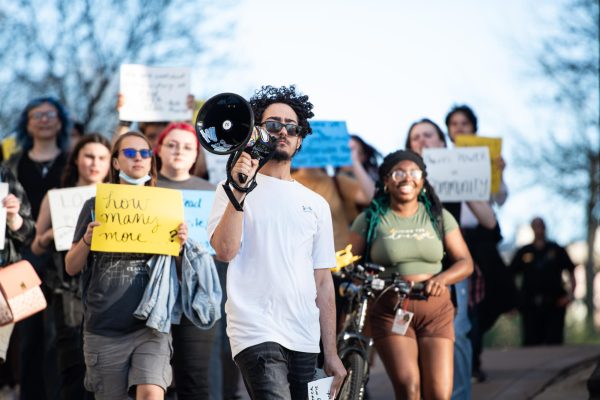Police stop more parties with noise violation law
November 13, 2012
Lawns are littered with broken glass and crushed cans. People stumble through doors, spilling into the street. Music bumps well past midnight.
These scenes pervade Thursday through Saturday nights on the streets surrounding Kent State’s campus, and, more often, police cruisers are part of the crowd.
Violations of Kent’s unlawful noise ordinance — a misdemeanor carrying fines up to $1,000 for a first offense — have increased in volume in recent years, despite attempts to add harsher penalties with a nuisance law. Police records show noise-related citations so far this year already represent a jump of nearly 40 percent from last year.
Lt. Jim Prusha, who has dealt with noise violations around campus for more than eight years, said although the procedure for handling excessive noise hasn’t changed much, officers have been “reminded” to enforce it in recent years.
“In the past, officers have been a little more lenient than what our procedure actually says they should be … it kind of got a little lax,” Prusha said. “It’s really a no-nonsense kind of thing. If you go there, and this is what’s happening, it’s a ticket.”
Under the noise law passed 10 years ago, officers cite properties based on either observation or a complaint called in from neighbors. City council granted police additional flexibility in 2007 by allowing automatic fines and more control over parties that commit other violations besides excessive noise — such as littering, underage drinking or blocking traffic.
By designating these houses as “nuisance parties,” officers have the authority to shut them down. Prusha said this is to keep police from having to make repeat visits to the same house and handing out multiple tickets.
“Years ago, when I was a night shift officer, I’d go out to a lot of parties [and] write the homeowner a ticket … we’d come back, there’d still be 200 people there,” he said. “Now, with this ordinance, I can say [to visitors]: ‘leave.’ And if they don’t leave, I can arrest them.”
Police have written more nuisance party tickets this year than the past two years combined, according to records. Prusha said increased numbers could be the result of more students and, thus, more parties in general.
“The officers are more familiar with the [nuisance party ordinance] than they were years back,” he said. “The prosecutors are and the courts are. So it’s just a more common thing that everyone’s aware of now.”
Prusha denied that police actively target certain areas of the city, estimating four of every five violations stem from complaints from neighbors rather than police.
“We’re usually busy enough that we’re not out actively looking for these things,” he said. “Unless something’s getting to be a couple hundred people and it’s pretty darn loud, we usually wait until somebody calls.”
University Drive has been the hotspot of noise complaints with 48, with College Avenue at 41 and Lincoln Avenue at 37. In terms of actual citations, University is tied with Lincoln with the most at 29.
Officers have a “limited amount” of subjectivity, Prusha said, when it comes to assessing possible violations.
“We’re supposed to be consistent,” he said. “It should be whichever cop shows up, they react the same way to the last one or the next one.”
According to the department’s procedure, officers issue violations only if the noise is “plainly audible” on a neighbor’s property or disturbs others “of ordinary sensibilities.” If an officer answers “yes” to any of the criteria, phrased as questions, then they write the ticket.
“When I supervised night shift, I kind of went with the idea that if someone’s calling us, they’re disturbed,” he said.
Prusha recognized students living off-campus may not be too happy about a fine for partying, but he pointed out some families live on the east side of University Drive and the north side of College Street. In fact, he said, a lot of the rental properties off campus used to be single-family homes.
“Unfortunately around Kent, a lot of the frat houses — and also just the rental properties — can be right next to single family homes where they are having to work in the morning,” he said. “Folks want to sleep at night.”
Prusha said he thought both the noise ordinance and the nuisance law were effective deterrents, despite the rise in numbers.
“I imagine people talk about it,” Prusha said. “When I drive down the street with the windows open, I hear them go “shhh shhh shhh!’ So they’re aware.”
Contact Daniel Moore at [email protected].
























